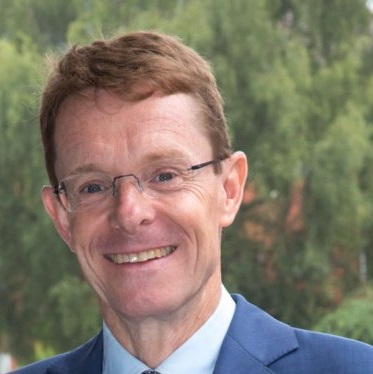The West Midlands is on the cusp of a once-in-a-lifetime opportunity to transform our connectivity and infrastructure. Work starts next year on HS2, slashing the time it will take to travel from London to the region to less than an hour. That brings enormous economic opportunities – but also the challenge of making the most of them. I’m excited that over the next few months I’ll be working with the National Infrastructure Commission on this very issue.
One of the biggest challenges we face here in the West Midlands is congestion. Building and improving roads may help in the short term but we need to think more creatively than that, and ultimately, we need to offer drivers an attractive alternative to the car.
Our long-term transport plan, ‘Movement for Growth’, considers not just how our road network can adapt to the arrival of HS2, but also how tram and rail links can best connect and feed into the region’s two high speed stations. In practice, that’s meaning the expansion of the Midlands Metro tram system, reopening closed rail lines, supercharging cycling and walking routes, enhancing park and ride offers at stations – all supported by a smart ticketing system integrated across the network, and apps giving passengers live travel information.
As for the roads themselves, we increasingly need to think beyond the technology of yesteryear, and start to prepare for the arrival of electric and autonomous vehicles, which will help contribute towards improving the region’s air quality, particularly in our cities. So I was particularly pleased when it was decided that a large chunk of the £51million Government funding for testing this new technology would be invested right here in the West Midlands, including real-world test environments in Birmingham and Coventry.
As we invest, we also need to consider the regeneration impact this can all have. Visitors to Birmingham cannot fail to notice how the transformation of New Street station has breathed new life into that part of the city, and we have high ambitions for the impact that the new Curzon Street terminal for HS2 will have. But any new infrastructure must also deliver new homes – something this region is in desperate need of.
None of these issues can be considered in isolation, and each of the infrastructure sectors need to be integrated to ensure all are tackled and improved. That’s the vital role the National Infrastructure Commission plays, providing crucial advice and recommendations on how best to make the most not only of what we look to build, but also of our existing assets.
I also value the Commission’s longer-term perspective, helping to ensure we plan for the future as well as delivering for today’s commuters and citizens. And increasingly, the needs of the West Midlands are interconnected with those of other regions – the Commission’s role in bringing all the new Mayors together, and connecting them with the machinery of Government in Whitehall, is vital as we look to deliver for our residents.
I was therefore delighted that Lord Adonis chose to launch the Commission’s interim National Infrastructure Assessment at Birmingham City University, overlooking exactly where HS2 will come through the city. Congestion, Capacity, Carbon highlights the priorities we have in the West Midlands: investing in public transport, particularly within our cities; making sure infrastructure and homes are planned together, and taking all these steps with the environment firmly in mind. But these are issues our region has in common with much of the country. This report highlights that – and how Mayors like me can play their part.
That’s why as I look to work with the Combined Authority and Transport for the West Midlands to develop an infrastructure plan, I’ll be drawing on the knowledge of the team at the National Infrastructure Commission, helping to ensure we make the most of every opportunity that comes our way.
Andy Street is Mayor for the West Midlands




